Setting right a long-running geopolitical faultline is not an everyday task for any government. But the Government of India did something akin to that on August 5, 2019, when it abrogated the special status of the state of Jammu and Kashmir. The conflict in Kashmir has a 70-year history, starting in 1947 when colonial Britain partitioned the Indian subcontinent to create two nations. It is now a whole year since India took what is perhaps the most important action in the entire Kashmir timeline. Is Kashmir better now? What do Kashmiris say?
The partition of 1947 and the devastating communal riots left bitter scars on the continent, but no other region suffered more than Jammu and Kashmir. More than 40,000 people died in violence in the last 30 years alone, including civilians, Indian security personnel and separatist militants. The land of blinding beauty, rich tradition and amazingly warm and welcoming people sadly became a byword for conflict. Generations vainly sought a solution and died with hopes betrayed.
While revoking Jammu and Kashmir's statehood and ending its special rights, India's central government clarified that Article 370 was a temporary provision that long outlived its utility. "By any standards, 70 years is a long definition of that term. The reason why it is being changed now lies in why the situation lasted so long," Foreign Minister S Jaishankar wrote.
Addressing a Costly Ambivalence
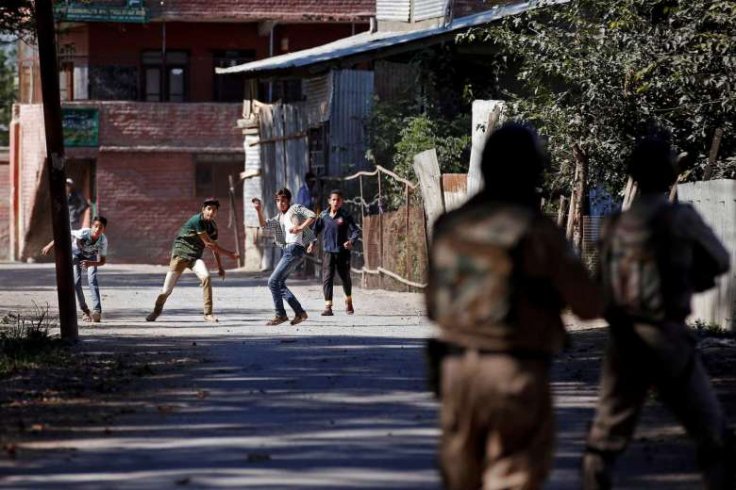
But at the core, the move meant more than this. It was a strike at the root of a costly ambivalence that spawned decades of military conflict, a long reign of insurgency and as many as four wars between two nuclear-armed countries. Some of the biggest terror attacks that the world ever saw stemmed from the Kashmir conundrum where foreign-backed separatists pushed a campaign to widen the crack of the 'special rights' into full-blown cessation from India.
Jammu and Kashmir had a separate constitution, a separate flag and a fair degree of internal autonomy that no other Indian state enjoyed. These were accorded as a temporary provision in 1949 following its full and irrevocable accession to India in 1947, signed by Maharaja Hari Singh and Lord Mountbatten.
Now, a year on, Kashmir's statehood doesn't exist, Article 370 that accorded special levels of autonomy has gone and a tightly-controlled domicile law under Article 35A has gone too. And the state has been bifurcated into two Union Territories. The Muslim-dominated Kashmir Valley and Hindu-majority Jammu region are still packed together while the sparsely populated but strategically crucial Ladakh with its prominent Buddhist majority and a sizeable Shia Muslim minority is a separate Union Territory. These changes made by the Narendra Modi government were later ratified by the Indian parliament with a resounding majority.
A Drastic Move, and the Response
How was this drastic move received in the Kashmir Valley? Has militancy and street violence subsided? Has Pakistan made good on its threat to make it more difficult for thousands of Indian security personnel deployed in Kashmir? Official figures show fewer militant attacks, fewer civilian and troop casualties and far fewer amount of shutdowns and street mayhem after the repeal of Article 370.
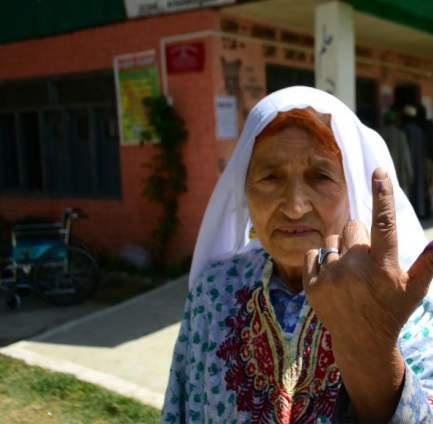
Several independent Kashmiri political observers say that the specter of violence over the repeal of Article 370 was overplayed. "After the abrogation of Article 370 and Article 35A, did Kashmir streets erupt into anger and violence? It did not. We saw major spikes in violence in 2009, and in 2016 following the killing of Hizbul Mujahideen commander Burhan Wani. However, you did not see such violence when the central government annulled Article 370 on August 5 last year," says Javaid Trali, Co-founder, Jammu and Kashmir Policy Institute.
What changed things on the ground? Were the Kashmiris overawed by the resoluteness of the Indian government that was manifest in the decision to scrap Article 370 and remove statehood of J&K? Not exactly, says Sajid Yousuf, President, All JK Youth Society.
August 5, 2019, marked a radical shift in Kashmiri politics, he avers. "The shutdown call was a tradition in the Valley. But for the first time in Kashmir, there are no frequent shutdowns. Earlier, the politicians -- the Hurriyat, the Muftis or the Abdullahs -- were happy to see the protesters and the stone pelters on the streets. They were happy if people were on the roads as there would be no one to question them and challenge them on their failures," says Yousuf, who is also a lawyer and social activist.
New Politics Emerges
However, Trali, who runs the Srinagar-based independent think tank, hastens to add that this doesn't mean switching politics off from the Valley is a good option. The changes of last year weren't meant to banish politics, he says. Instead, a more meaningful grassroots politics is emerging in the Valley, he adds. "Ordinary Kashmiris have rejected people with the credibility crisis, those leaders who don't have a connection with the people. It has been a political exercise gone wrong over the decades. The centre should now facilitate the emergence of new leadership from the ground up," he says.
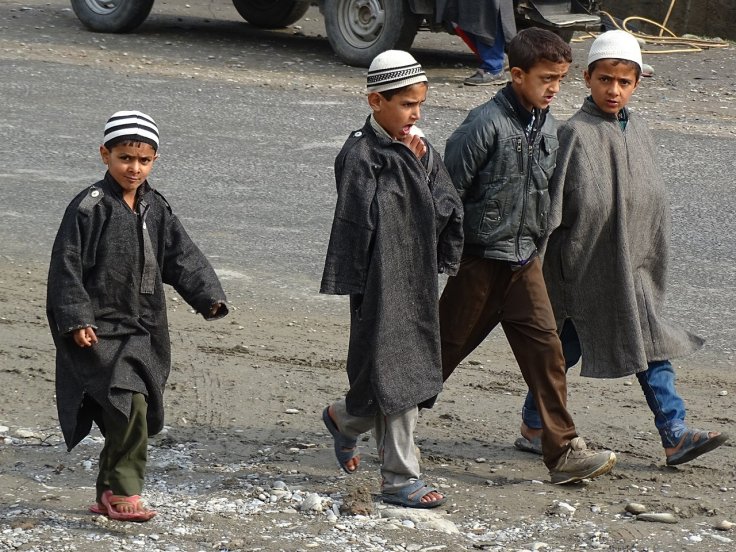
There are signs that democracy is thriving in Kashmir at the local level. Yusuf cites the example of the local body elections in October last year that witnessed a 98 percent voter turnout. "Grassroots democracy was almost gone from Kashmir valley, but it came back with the BDC election," he says.
But on the other hand, former chief minister Omar Abdullah of the National Conference party has said he won't participate in the election as long as J&K remains a Union Territory. Does that mean that the mainstream politics in Kashmir has been paralyzed by the revocation of Article 370 and the removal of statehood?
Dr. Noor Ahamad Baba, former Dean, Faculty of Social Science at the University of Kashmir, thinks so. "The major pillars of mainstream politics have been weakened in the aftermath of the abrogation of Article 370. Leaders have been put behind the bars and the political structure has crumbled. Along with the removal of the distinct character of Jammu and Kashmir as a Muslim majority state, the weakening of the political system will do more harm than good," he says.
However, Touseef Raina, who founded advocacy group Global Youth Foundation, says the old guard has lost relevance. "If Omar Abdullah and Mehbooba Mufti do not want to contest in the elections, let it be. They have been playing the politics of victimization. Abdullah isn't saying his party won't contest. Its basically a political posturing, playing the victim card. But the people are smarter," says Raina, who is also the vice-president of Policy Institute of Jammu and Kashmir.
Yousuf points out that a robust political movement is taking shape in the villages and that's the future of Kashmir. For example, Kashmir youth leader Mir Junaid, who founded the Jammu and Kashmir Workers Party, is a force to reckon with in the post-August 5 Kashmir, Yousuf says. "He has some 3,000 sarpanches (elected local body representatives) with him. Let there be fair and transparent elections. The voice of Kashmir will be heard," he says.
How They See Kashmir
The dominant international narrative on Kashmir post-August 5, 2019 reflected two major concerns. One, the change in the status quo would escalate the violence, insurgency, terrorism and border conflict between India and Pakistan. Two, the move was tantamount to the deprival of the democratic rights of Kashmiris.
Both these fears are misplaced, says Trali, the Srinagar-based academic and activist. There's no use bemoaning the crumbling of the mainstream, he says. "Over the years, the institution of the vote has been discredited. It's been a problem with the system. The mainstream didn't have intellectual honesty. While wielding power through democratic means, they encouraged separatism through sly means. You know why separatism thrived despite Kashmir having elected governments and a great deal of autonomy in the last 70 years? Because it had the backing of the ruling elite. They did it for meeting their own political agenda," says Trali.
"What if Omar Abdullah doesn't want to participate in the elections? Nothing. The next generation of leaders will emerge from the ground. Let it be from any party. Let it be from the AAP, let it be university students, let it from the local self-government bodies. The next elections maybe minus Mehbooba [Mufti], minus [Omar] Abdullah, it doesn't matter."
Everyone agrees that the democratic process should start again. New Delhi says the election to the legislative assembly will take place when the constituency delimitation process is over. Under the Jammu and Kashmir Reorganisation Act of 2019, the Union Territory will have a 114-member legislative assembly. It was a 107-member body previously. Out of the 114 seats, 24 seats are in Pakistan-occupied Kashmir, leaving 90 seats where elections will take place.
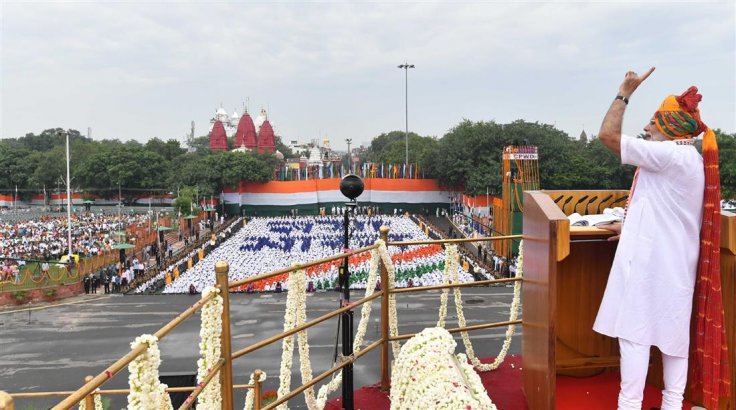
An India government communique says that the current administration in J&K is re-establishing the connection with the local masses. It says as many as 36 Union ministers visited the Kashmir Valley in the last year. Raina, who is also the founder of media portal Alternate Kashmir, says this is an encouraging development. "Union ministers are visiting Kashmir villages. A sarpanch from Baramullah can now speak to the Prime Minister of the country. That is a big change. Grassroots politics is being strengthened like never before," he adds.
Kashmiris who support the historic August 5 move base their argument on the wasted decades of the Valley. They say that the central governments did everything they could in the last 30 years or so. Trali points out that the centre reached out to the militants, talked to the Hurriyat Conference and engaged with mainstream parties. However, separatism thrived, clashes persisted and the tensions with Pakistan didn't go away. "If the government of India came out to negotiate, if it talked about self-rule or autonomy, then the separatists would raise the bar. This cycle was going on endlessly."
Separatism and Mainstream
The mainstream did nothing to stop the glorification of separatism, he says. "The young people were told that they are fighting the world's third-largest army. They were up against the mighty Indian establishment -- CRPF, army, police, BSF. It didn't matter that the boys got killed in 4 days. Yet, they were taught to believe that they did a great deed," he adds.
"The Muftis and Abdullahs like it when there's turmoil in Kashmir. The situation that prevailed before Aug. 5 2019 helped them. That situation helped them more than it helped the separatists or Pakistan," he says in a candid, radical comment.
Trali and like-minded people observe that there's a new reality in Kashmir and it's for Kashmiris to embrace it. That view runs counter to some dominant narratives. Besides mainstream Kashmiri political parties, a wide array of India's Opposition parties also denounced the abrogation of Article 370. Pakistan issued threats and China ingratiated further with Islamabad to heighten pressure on India.
But for many Kashmiris, the Opposition's platitudinous homage for a dying status-quo doesn't make a lot of sense. "You see, there are these so-called intellectuals everywhere who run their shops on the Kashmir issue. Some documentaries on Kashmir protests that did the rounds across the country were actually fake," says Yousuf, the Srinagar-based lawyer.
"The critics have a lot of rhetorical questions but nobody has a solution ... In Islamabad and Delhi, many people are running their shops on the Kashmir issue, and perpetuating nepotism and corruption in the process."
However, political work in the Valley still remains under the threat of militant attacks. Wasim Bari, a local leader of the Bharatiya Janata Party (BJP), was killed by the militants in North Kashmir on July 8. A month before that, Congress sarpanch Ajay Pandita was killed by terrorists in Anantnag. However these 'isolated incidents' of violence will not deter the central government from going ahead with the elections, says Sunil Sethi, the spokesman for Jammu and Kashmir BJP.
"I see no reason why elections aren't going to be held. It's being delayed only because the delimitation process is not complete. A meaningfully representative government will come in Kashmir soon," says Sethi.
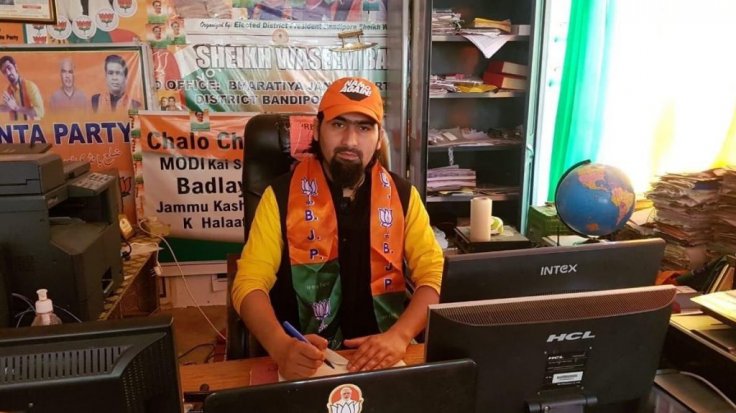
Patrons and Beneficiaries
The J&K government says the last year saw a slew of reforms and development work. More government jobs have been created, the weaker sections have been offered protections, and there have been greater investments in education and health sectors. Big infrastructure projects have been initiated, including the light metro rail for Srinagar and Jammu. An employment protection scheme has been rolled out and the residents of the entire state will come under a health insurance scheme. More people have been brought under the ambit of social welfare payments and there is a whopping 360 percent increase in the number of houses sanctioned for poorer sections.
The list goes on, but everyone agrees that all the development goals will not be met in a year. But the change on the ground is appreciated by many. "There were midday meals for children in the Kashmir I grew up in. Then they were gone. Now, the current administration is bringing it back," says Yousuf.
More importantly, he sees other changes on the ground with greater interest. He says that the new domicile law for Kashmir after the repeal of the Article 35A has addressed many injustices. "Kashmiri women are happy now. They have got the right now to marry outside Kashmir and still transfer the property. They were not eligible for this earlier," he says.
"Look at the cinemas in Srinagar. The first time in maybe 30 years the movie theaters are going to be reopened. They were shut down when militancy hit the Valley. Also, sports activities are getting a boost," he adds.
Arguably, there is still resentment over the repeal of the Articles 370 and 35A. Dr. Noor Ahmad Baba of Kashmir University asserts that Kashmiris were robbed of their distinct identity in the scheme of things. "The democratic, secular and pluralist ideals have been challenged by this move. Article 370 ensured Kashmir's special rights while 35A helped it retain its distinct character," he says.
But the other side asks who used the privileges under Article 370 and 35A over the years. "Who used the benefits of Article 370 and Article 35A? Only a few families. The Shias, the Pahadis (the inhabitants of hilly regions) and the non-Kashmiri speaking people were not the beneficiaries. Even the people living outside the districts of Srinagar, Ananthnag and Ganderbal have been suffering. They were worse off than even the people of Jammu, I would say. Power was in the hands of only a few families," says Sethi, who is also a senior advocate in the Jammu and Kashmir High Court.
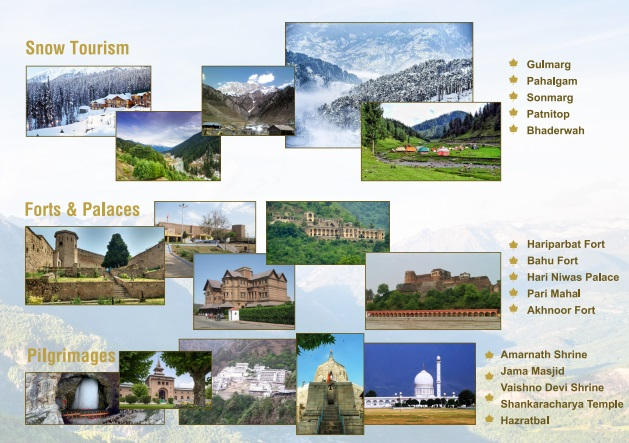
What Kashmir wants from a local government is good governance, transparency and accountability, repeats Raina.
End of Blackmail?
The successive governments failed in this despite being served huge opportunities, adds Trali. "Look at Omar Abdullah, When he came to power in 2008 he was feted as Kashmir's Obama. But ultimately what happened?" he asks.
"When it came to delivery, he failed. He did not ensure good governance. He did not come to power to resolve the Kashmir issue nor to engage in peace talks with Pakistan. His mandate was not to implement the demilitarisation or talk to the separatists. The mandate was for good governance.," he adds.
Mufti, a former chief minister who is still in detention in Srinagar, had issued an open warning that the removal of Article 370 would also mean Kashmir's 'freedom' from the country as well. The change in Kashmir's status would mean "there will be no Jammu and Kashmir or India left," she had said.
"So when they fail in good governance, they talk about emotive issues to hide the failures. Therefore, the repeal of Article 370 was the central government's declaration that it was not going to be held ransom to this blackmail," says Trali.
The center's action on August 5, 2019, brought the curtains down on a tumultuous episode in the history of Kashmir that started with the accord of special provisions to Jammu and Kashmir on 17 October 1949, when the Indian Constituent Assembly adopted Article 370 of the Constitution giving special status and internal autonomy to the state.
But that's not all. The majestic mountains of Kashmir have more stories to tell.
"No matter who justifies militancy, it's violence after all. Violence is never the answer. There has to be the realization that nothing was achieved in the last 30 years," says Trali.
"We can't afford to see more graveyards. No mother wants her child to die. The only way to go ahead is to fight injustice at all levels. This is best done when you become part of the system than being away from it."









